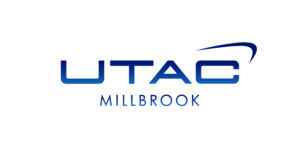
Founded by Tim Wright, Langcroft Consultancy specialises in helping small to medium-sized manufacturers optimise their business processes through digital transformation. With a focus on process productivity and a background in UK manufacturing, Tim and his team offer invaluable expertise to companies seeking to modernise their processes and systems.
Langcroft Consultancy has been a Singlepoint Partner since 2023, ensuring clients benefit from the latest in quality management systems and digital technologies. In this exclusive interview, Tim shares his insights on the role of QMS and digital technologies in enhancing performance and productivity in the manufacturing sector.
Can you explain the role of quality management systems in digital transformation for manufacturers?
“Quality management systems are crucial for maintaining standards and ensuring consistent quality across operations. In the context of digital transformation, a well-implemented QMS can streamline processes, reduce errors, and improve overall efficiency.
Using digital tools to manage quality documentation, like Singlepoint, can significantly enhance these benefits by providing better control and accessibility.”
What are some key challenges manufacturers face in adopting digital technologies for quality management?
“Many SMEs still rely on outdated systems or manual processes, which makes the transition to digital technologies daunting. They often lack the technical expertise to implement and manage these new systems effectively. This is where consultants can play a crucial role, helping to bridge the knowledge gap and guide them through what to optimise and where. Systems like Singlepoint then provide clear, structured solutions that are easy to implement.
Another significant challenge is the resistance to change. Many employees are accustomed to traditional methods and may be wary of new technologies. This is compounded by the fact that digital transformation often requires a cultural shift within the organisation. Training and change management become crucial components of the implementation process. Without proper training and buy-in from staff, even the best digital solutions can fail to deliver the desired results.
Additionally, the initial cost and perceived complexity of digital solutions can be a barrier. Many SMEs operate on tight budgets and may hesitate to invest in new technologies without a clear understanding of the return on investment. I’ll talk about incremental deployment shortly, but that’s why systems like Singlepoint that can be bought in a modular manner are attractive”
What aspects of digital transformation do manufacturers often overlook, particularly in relation to quality management?
“One major aspect that is often overlooked is the importance of having fit-for-purpose technology to handle quality management.
Many companies struggle with managing ISO documents and quality standards using traditional network drives or SharePoint, which can be inefficient and error-prone. Implementing specialised digital solutions for QMS can greatly improve efficiency and accuracy.”
How can digital technologies improve performance and productivity in manufacturing?
“Digital technologies can automate many routine tasks, reducing the time and effort required to manage them manually. For example, integrating sensor-based connectivity allows for real-time data collection and analysis, improving decision-making and operational efficiency. This not only enhances productivity but also helps in maintaining high quality standards consistently.”
What future trends in digital technology should manufacturers be aware of to improve their quality management systems?
The future is leaning towards more integrated and intelligent systems. Sensor-based connectivity is becoming more accessible and can provide real-time insights into machine performance and product quality. AI is another significant trend, with tools like Microsoft Copilot offering advanced automation and predictive capabilities. These technologies can revolutionise how quality management is conducted, making it more proactive and less reactive.
Find out more about how Singlepoint has integrated Generative AI into its best in class Document Management System
How can SMEs assess the potential impact of new digital technologies on their quality management systems?
“Assessing the impact involves understanding both the costs and benefits. Many SMEs don’t perform a detailed analysis of their current processes compared to the proposed digital solutions. I often create costing workflows to demonstrate the inefficiencies in their existing systems and how digital technologies can address them. However, successful adoption also requires a commitment to internal change management and continuous improvement.”
Is an incremental deployment of digital solutions a better approach for improving quality management systems?
“Yes, incremental deployment allows companies to implement changes gradually, reducing risk and financial burden. This approach also makes it easier for employees to adapt to new systems and processes. By deploying solutions in parts and phases, manufacturers can manage the transition more effectively and ensure that each new technology is fully integrated and utilised to its potential before moving on to the next phase.”
What advice would you give to manufacturers looking to enhance their quality management through digital transformation?
“Start by assessing your current processes and identifying areas that would benefit the most from digitalisation. Engage with consultants who can provide expert guidance and tailor solutions to your specific needs. Focus on incremental changes rather than trying to overhaul everything at once, and ensure you have a robust change management strategy in place. Embrace the opportunities that digital technologies offer and continuously look for ways to improve and innovate.
The Made Smarter programme here in the UK is also a fantastic resource. It targets SME manufacturing and engineering companies that are often hesitant to start their digital journey. These companies know they need to do something, but they’re stuck with old legacy systems or manual processes like using Excel spreadsheets or even whiteboards. Made Smarter gives them the confidence to engage with consultants like myself and solutions like Singlepoint, who can assess their operations, identify pain points and provide tailored digital solutions. Our role should be to help make the transition less daunting and more manageable.
The UK government is clearly aiming to enhance competitiveness and productivity across multiple sectors, and manufacturing is a key area. Retail and other sectors have already embraced digital transformation, but manufacturing still lags. Made Smarter is bridging that gap, helping companies modernise and improve their operations.”









